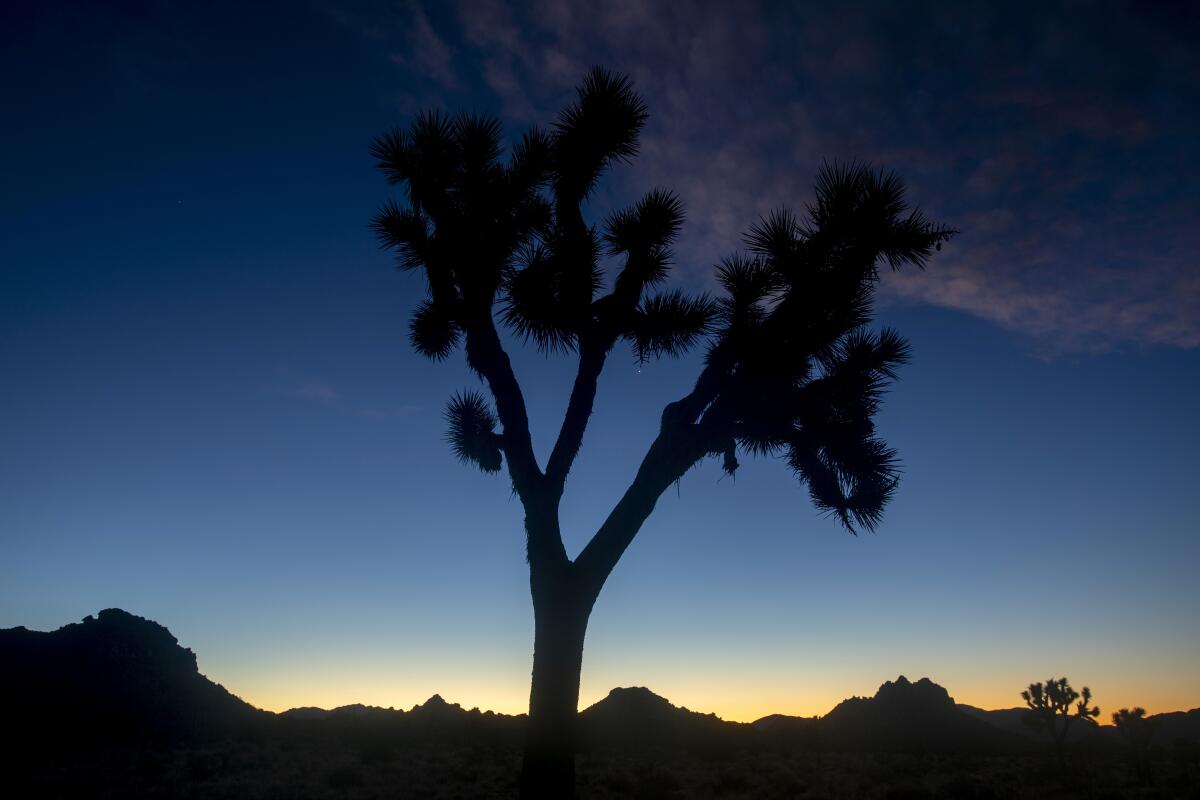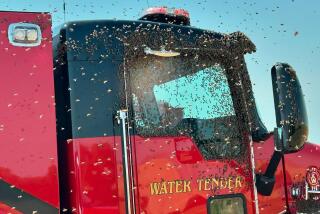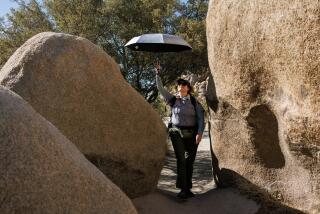Very thirsty bees close down parts of Joshua Tree National Park

Busy bees — jonesing for water, including from sweaty park visitors — have shut down parts of Joshua Tree National Park, park officials said.
The Cottonwood visitor center, parking area, restrooms and campground were closed Tuesday, the park announced on Instagram, because of increased bee activity. The closures were still in effect Thursday afternoon.
“In the summer, water becomes scarce and bees seek water sources just like our other park wildlife,” the post said. “However, this can include condensation from air conditioners, visitor sweat and bathrooms.”
The closure will reduce the amount of water available in the area and give the bees an opportunity to leave, the National Park Service said. In a looped video from the Instagram post, a group of bees huddles around water dripping from a car’s undercarriage. Another video shows dozens of bees flying underneath a white truck.
One Instagram commenter wrote that she’d never been stung by a bee until last week at Joshua Tree. She said she was attacked by a group of bees drinking her sweat: “I understand why you’d have to close entire areas. ... Just relentless!”
Another person said their RV was attacked after bees were drawn to an open water jug. A park ranger helped draw the bees away by pouring water in a trail on the ground, they said, and advised them to drive until the rest of the bees flew away.
A man in Jurupa Valley this month survived a bee attack in which he was stung more than 200 times and his two horses were killed. Local beekeeping experts suggested staying away from hives and contacting professionals to remove wild bees before they become an issue.
The U.S. Department of Agriculture says allergic reactions to bee stings can range from minor, with just a little swelling, to life-threatening anaphylactic shock, causing swelling in the mouth or throat, shortness of breath, impaired breathing and a drop in blood pressure — even from one sting. The department estimates that an average person without a severe allergy can withstand 10 stings per pound of body weight.
More to Read
Sign up for Essential California
The most important California stories and recommendations in your inbox every morning.
You may occasionally receive promotional content from the Los Angeles Times.











